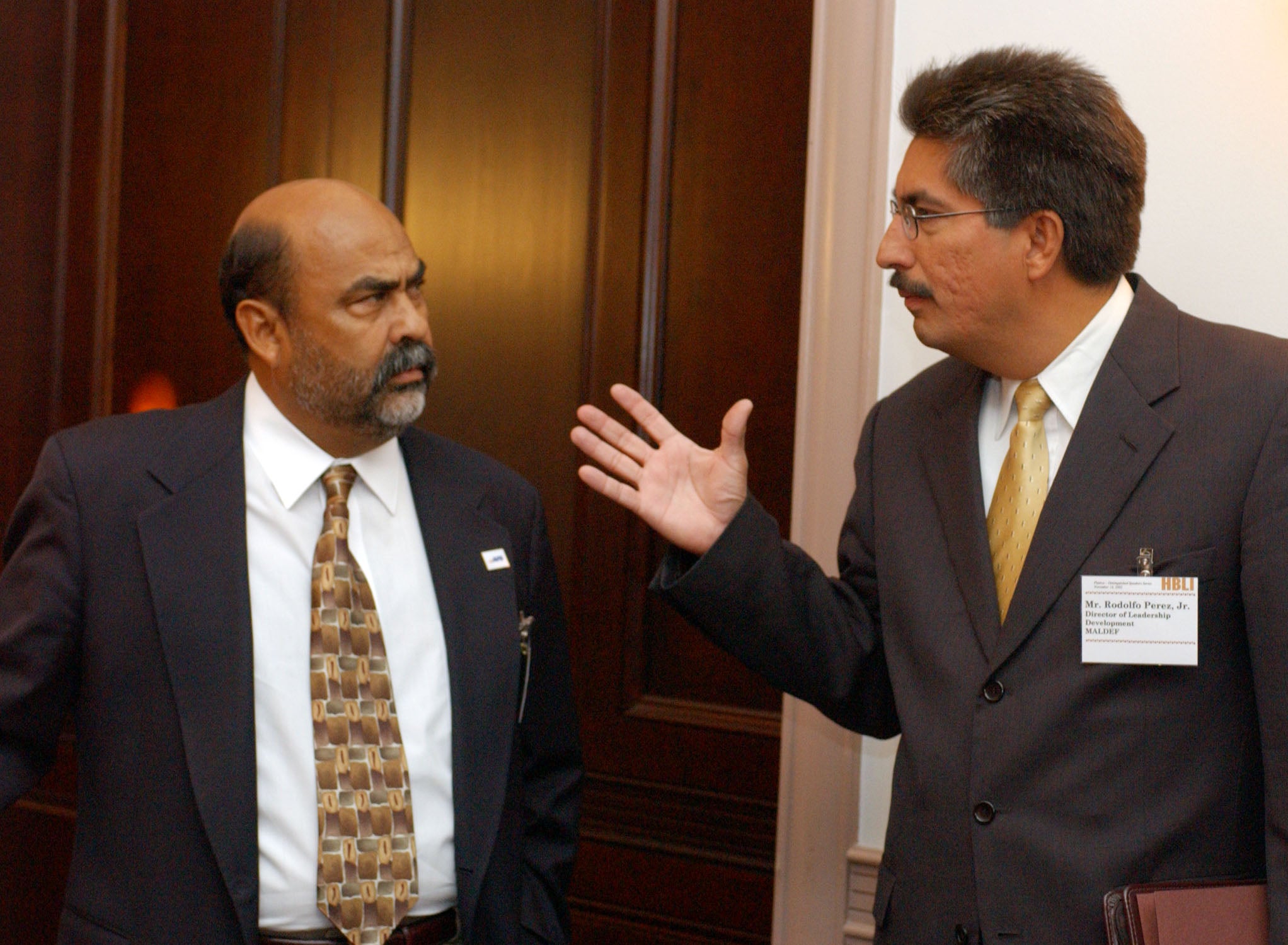Photos
Plática Speaker Albert Kauffman, "Consequence of the Accountability Movement on Students of Colors", 14 November 2002
Click on the Photos to view the Enlarged Pictures









___________________________________________________________________________
High-stakes tests duck real issue
By O. Ricardo Pimentel
Republic columnist
Nov. 23, 2002
There were many "ahas" in a discussion with Al Kauffman the other day about the latest craze in education: high-stakes testing, a k a accountability.
Here's one gem. Testing is expensive, but it is far less expensive than doing things that will actually increase learning. Things like lowering class size and improving teacher training.
Kauffman is a lawyer with the Civil Rights Project at Harvard University. But he is known in Texas as the guy who, as the longtime regional counsel for the Mexican-American Legal Defense and Educational Fund, consistently bedeviled authorities there with such trivial notions as fairness and equity in education.
The topic last week for Kauffman was high-stakes testing, looking at the "Texas educational miracle." He was brought in by the Hispanic Border Leadership Institute at Arizona State University.
The testing instrument in Texas is TAAS, the Texas Assessment of Academic Skills. In Arizona, it is AIMS, the Arizona Instrument of Measurement Standards. Both are high stakes, meaning students must pass these tests to graduate (starting in 2006 in Arizona).
A big problem: Educational "experts" who push high-stakes tests - and I use the term experts loosely - are subverting what they know to be true. That is that no single measure can tell the whole story about what a person knows.
So educators generally look at a number of things to get the entire picture - GPAs, grades in general, quizzes and class participation, for instance.
Kauffman quite correctly asserts that educational measurements should be "compensatory." In other words, a negative score on one measurement can be offset by a positive on another.
But of course the experts will tell you that their high-stakes tests are indeed compensatory. You have to complete the course work, for instance, in addition to passing the high-stakes test.
Right. But you don't get out of school unless you pass the test, no matter how well you did on those other measurements. This turns the term "compensatory" on its head.
Walt Haney, a professor of education at Boston College and an expert on testing, took a look at the Texas "miracle" two years ago.
He found that only half of minority students were making it from 9th grade to graduation since TAAS began in 1990. Thirty percent of Black and Latino students were failing 9th grade by the late '90s. The number of "special education" students taking the test in 10th grade - whose scores were therefore not counted for "accountability" purposes - nearly doubled between 1994 and 1998.
And more students in the mid-'90s started taking the GED test, presumably to avoid TAAS altogether.
So, one way to up scores is simply to get the bad test-takers to stop taking the test.
In fairness, however, there was improvement in Texas. It's just that it is likely more attributable to other things, notably spending more money on students.
There are stages of high-stakes testing, Kauffman says. Any similarities to Arizona are, of course, purely coincidental.
First worry about bad schools and then start holding them "accountable." With the perception that jobs and reputations are on the line, schools and states start suspecting that students aren't taking the accountability test "seriously." The test-as-graduation-requirement is born.
Quickly move on from testing basic skills to higher-order skills. Presto. Poor test-takers, many of whom are getting better grades than their test scores indicate, get discouraged.
Next, reason that it is unfair to punish just high school students. So, all of a sudden third-graders are told they can't go on to fourth unless they pass the test. Higher retention rates generally.
Label schools "underperforming" and send in consultants (all former educators, of course) to "fix" things. And if there is no improvement, take over the school.
And somewhere in there, particularly but not exclusively in underperforming schools, simply teach the test, to the exclusion of all else.
A test, of course, should measure what is actually being taught. OK, but if, as is the case in Arizona and Texas, minorities are overrepresented in underperforming schools - by definition, schools that are not teaching well - how can these students possibly be learning what's on the test?
The sad truth is that high-stakes tests, improperly used, simply allow us to evade harder - and more expensive - choices.
Aha.
See Link
___________________________________________________________________________

